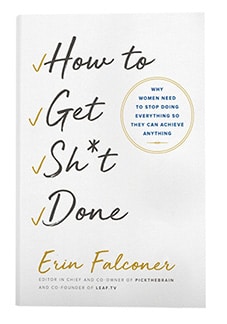Many years ago, when my eldest son was about six years old, I introduced him to Chutes and Ladders, the next board game up from Candyland on the sophistication scale. Nothing but luck, the game nevertheless contains an engaging element of the unpredictable, as any roll of the die can rocket you up a ladder to the top or send you plummeting down a slide to the bottom.
My son took to the game immediately, and we bonded as we moved our respective pieces up and down the board. And then, with fatherly foresight, I waited for the moment of supreme joy and excitement as my son counted his piece onto the 100 mark at the top of the playing grid.
“You won!” I cried out, expecting him to respond with elation.
Instead, my son looked at the board, looked at me, and burst into tears.
“What’s wrong?” I exclaimed, genuinely flummoxed.
“I don’t want the game to be over!” he bawled.
Oh, if only they could stay six years old forever.
It’s worth examining what happens as we grow older that makes us lose the joy of the game in our headlong pursuit of victory. Maybe it’s that we’re not paying attention. Maybe it’s that we’re paying too much attention.
OR MAYBE IT’S BOTH
We’re used to hearing about the downside of attention deficit disorder. NPR has reported that, according to Dr. David Goodman of Johns Hopkins University, adults with ADHD typically display inconsistency at work, come late to meetings, and have problems managing daily tasks such as paying their bills on time, at all, or in the correct amount. They are also more likely to lose their jobs or file for bankruptcy.
But there’s another side to the story.
In a recent Ted Talk, economist Tim Harford cites research that Harvard undergraduates with weak attention filters attained creative milestones like publishing a novel or recording an album far more often than those who possessed more efficient mental filters. Although the intrusion of peripheral information made it harder for them to focus on any one subject at any given time, all those distractions may actually have stimulated their creative processes over time.
As Dr. Harford puts it, “They were able to think outside the box because their box was full of holes.”
In other words, single-mindedness does not always work to our advantage.
Writing for Inc., Geoffrey James quotes Brigid Schulte, bestselling author of Overwhelmed: Work, Love, and Play When No One Has the Time, on the apparent contradiction in the way our minds function:
Neuroscience is finding that when we are idle, in leisure, our brains are most active. The Default Mode Network lights up, which, like airport hubs, connects parts of our brain that don’t typically communicate. So a stray thought, a random memory, an image can combine in novel ways to produce novel ideas.
By over-focusing, we may acquire a certain mental efficiency that the benefits us in narrowly-defined activities, but we end up filtering out potentially useful information by presuming too quickly that it won’t serve to our purposes. We also lock our minds into a sort of all-or-nothing mode that prevents us from making connections that are not immediately self-evident.
What we might need is to go back to playing Chutes and Ladders.
FOR THE LOVE OF THE GAME
What makes games so enjoyable? Simply speaking, the true joy of playing a game is in playing the game, regardless of the outcome.
In biblical Hebrew, the word for “plaything” is she’ashuyi — which translates literally as turning toward turning toward. We spend most of our lives in pursuit of goals: education, careers, relationships, wealth, recognition. This is a good thing, since happiness and fulfillment are built upon the sense of purpose implicit in working toward meaningful achievement.
But when we become so consumed by the goal that we no longer value the process by which we attain it, we lose the sense of meaning in our efforts and feel only frustration as long as the prize remains out of reach. Even worse, once we finally achieve what we want, we may feel empty because we took so little pleasure in the journey that got us there.
What makes a toy or a game so engaging is that it has no purpose other than pleasure and amusement. We needn’t think about anything other than our own entertainment, and we can lose ourselves utterly in what we are doing. When we do, we allow the creative parts of our brains to relax, which can open our up our thoughts to endless new possibilities.
Of course, such expressions as mindless entertainment, escapism, and the once-popular idiot box expose how there’s a downside to this as well. What we need is to be able to strike a balance between the process and the goal.
We do this by reconnecting with the six-year-old who cares more about playing the game than he cares about winning the game, by focusing a little less on where we want to get and noticing a little more what we find along the path that gets us there.
So while ADD sufferers may need to impose greater structure on their lives to compensate for their disorder, the rest of us may need to introduce a measure of calculated disorder to shake things up a bit. Here are a few suggestions how to do it:
Embrace the chaos. Tim Harford tells the story of how in January of 1975 Keith Jarrett arrived for his performance at the Cologne Opera House to discover an untuned piano with sticky black keys, a tinny upper register, and pedals that didn’t work. Moreover, the piano itself was too small to create the volume necessary to fill such a large space. Mr. Jarrett said either they had to get a different piano or he wouldn’t play.
Vera Brandes, the young promoter, tried in vain to find another instrument, but the best she could do was get the piano tuned. She stood in the rain begging Keith Jarrett to reconsider, until the musician took mercy on her and agreed to perform.
He was glad he did. Improvising to compensate for the deficiencies in the instrument, Mr. Jarrett produced an extraordinary performance. The recording of that night’s concert became both the best-selling piano album and the best-selling solo jazz album in history. Instead of worrying about the outcome, Keith Jarrett gave his full attention to the process, turning his lemon into once-in-a-lifetime lemonade.
Try hit-or-miss. Too much scientific method, too much of the same company, too-familiar patterns and associations from one day to another — all of these can cause the creative pathways of our brains to calcify, both literally and figuratively. If we don’t force ourselves to think outside the box, after a while box becomes a prison. If we don’t take chances by exposing ourselves to the unaccustomed, we can end up stuck in rut with no way out.
This is why it can be a blessing to have a weak attention filter. But regardless of how well our minds can screen out the distractions of the surrounding world, if we let the peculiar and the unexplored in from time to time, we are bound to discover all kinds of new insights and outlooks about our world and ourselves. As Uma Thurman says to Ben Affleck in Paycheck: “Some of the best things in life are total mistakes.”
The right kind of chill. There’s a reason why it’s called mindless entertainment. But television mysteries, Jeopardy! or, even better, an engaging book or puzzle (especially when complemented by daily exercise) can help you wind down without turning your brain into guacamole — the likely fallout from shows like Dancing With The Stars and The Bachelorette. Finding the sweet spot where your brain is both engaged and relaxed will yield the greatest results in creative thinking.
Look on the bright side. It has become a cliché, but clichés are often true. The more negatively we act and think, the more negative we feel. So find good things to say. Bite your tongue when you sense a critical remark forming on your lips. No one likes hearing other people complain. It’s no better when we have to listen to ourselves.
Then take it a step further: smile at people, even strangers. Nine out of ten times they’ll smile back. You might even spark a conversation, which may open up all kinds of new pathways in your thinking and perhaps in your personal life as well.
A few little changes can easily translate into major life changes. It may not take much to make our brains respond like a car after a long-overdue tune-up.
Rabbi Yonason Goldson, a talmudic scholar and radio personality, is a former hitchhiker, circumnavigator, and newspaper columnist who lives with his wife in St. Louis, Missouri. His new book is Proverbial Beauty: Secrets for Success and Happiness from the Wisdom of the Ages, a marriage of King Solomon’s proverbs with the mysterious beauty of the Mona Lisa, is filled with discovery, insight, and inspiration.
Erin shows overscheduled, overwhelmed women how to do less so that they can achieve more. Traditional productivity books—written by men—barely touch the tangle of cultural pressures that women feel when facing down a to-do list. How to Get Sh*t Done will teach you how to zero in on the three areas of your life where you want to excel, and then it will show you how to off-load, outsource, or just stop giving a damn about the rest.





668467 565147I discovered your website internet site on google and check a couple of your early posts. Preserve in the top notch operate. I just extra up your Feed to my MSN News Reader. Searching for toward reading far far more of your stuff afterwards! 379140
에볼루션코리아
766EaBDaa=”<
에볼루션카지노
216PENZjP+$&
에볼루션바카라
953LmseJH,)<
에볼루션룰렛
529mKfPDZ|,;
에볼루션블랙잭390ytYOiC=/~